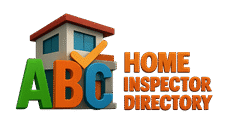How to Become a Home Inspector in Florida
Becoming a licensed home inspector in Florida involves several specific steps mandated by the state’s Department of Business & Professional Regulation (DBPR). Below is a comprehensive breakdown from education through renewal:
1. Meet the Required Education / Pre-License Coursework
- Florida law requires completion of at least 120 hours of DBPR-approved instruction covering the eight major components of a home.
- The “eight components” typically include structure, electrical, plumbing, mechanical, roof, interior, exterior, and site (or lot and foundation).
- Coursework may be offered online, in-class, or hybrid formats by approved providers. (For example, Gold Coast Schools offers a 120-hour pre-license course with live or virtual instruction and hands-on components)
- Note: While field (on-site) training is not always mandatory, many courses include it or strongly recommend it as practical experience.
2. Choose & Pass an Approved Examination
Once your 120 hours are complete (and you satisfy other prerequisites), you’ll need to pass a state-approved exam. Florida allows several exam options:
- National Home Inspector Examination (NHIE) — a nationally recognized test.
- Florida-specific licensing exam(s) approved by DBPR (e.g. InterNACHI’s Florida exam)
- FABI (Florida Association of Building Inspectors) exam
- CI-HPI / ACICP (Association of Construction Industry’s Certified Home & Property Inspector exam) is another option in some cases.
Exam specifics (number of questions, duration, format) vary by provider.
You need to pass one of the approved exams before applying for licensure.
Florida Home Inspector Exam information
3. Background Check & Fingerprinting
- Florida requires that you submit fingerprints for a criminal background check.
- You must use a Livescan service provider registered with the Florida Department of Law Enforcement (FDLE).
- Submit fingerprints after or in conjunction with your license application as directed by DBPR.
4. Provide Insurance Documentation
- You must attest to having commercial general liability insurance with a minimum coverage of $300,000.
- This insurance is mandatory to protect both you and your clients from liability risks.
5. Submit Your Application to DBPR
- Once education, exam, fingerprinting, and insurance are in place, you submit a completed application to the Florida DBPR – Home Inspectors Licensing Program.
- You’ll pay the application fee. (Active license applications have associated fees; DBPR offers fee waivers or discounts for veterans, military spouses, etc.)
- Your application will be reviewed, and if approved, you’ll receive your Home Inspector License (HI 0401).
Florida DBPR Home Inspector Licensing Office information
6. License Activation, Renewal & Continuing Education
- In Florida, home inspector licenses expire July 31st of even-numbered years.
- To renew, you must complete 14 hours of continuing education (CE) every 2 years. Of those 14 hours, 2 hours must be in wind mitigation and the remaining 12 can be broader home inspection topics.
- DBPR regulates CE providers and approving courses aligned with home inspection content.
Renewal & Continuing Education information
7. Optional: Join Professional Associations & Gain Certifications
- While not required by law, joining groups such as InterNACHI or ASHI gives you credibility, continuing education resources, networking, and marketing support.
- Many associations offer certification programs and exam prep that can help you pass your exam or elevate your standing among clients.
8. Additional Considerations
- Reciprocity / Endorsement: If you are already licensed in another state, Florida may allow licensure by endorsement under certain conditions.
- Regulations & Scope: Home inspectors must comply with Florida’s statutes, rules, and Standards of Practice.
- Lead Paint / EPA Certification: If you perform work in homes built before 1978 that disturbs painted surfaces, you may need EPA lead-safe certification under federal regulation.
Frequently Asked Questions – Florida Home Inspector Licensing
Q: How many hours of training are required to become a home inspector in Florida?
A: Florida requires completion of 120 hours of approved pre-licensing education that covers the major components of a home, including structure, electrical, plumbing, HVAC, roofing, and more.
Q: Do I have to take an exam to become a home inspector in Florida?
A: Yes. Florida requires you to pass a state-approved exam, such as the National Home Inspector Examination (NHIE), the Florida InterNACHI exam, or another DBPR-approved test before applying for a license.
Q: How much liability insurance is required for home inspectors in Florida?
A: Florida law requires home inspectors to maintain $300,000 in commercial general liability insurance as part of the licensing process.
Q: How often do I need to renew my Florida home inspector license?
A: Home inspector licenses in Florida expire on July 31st of even-numbered years. To renew, you must complete 14 hours of continuing education, including at least 2 hours in wind mitigation.
